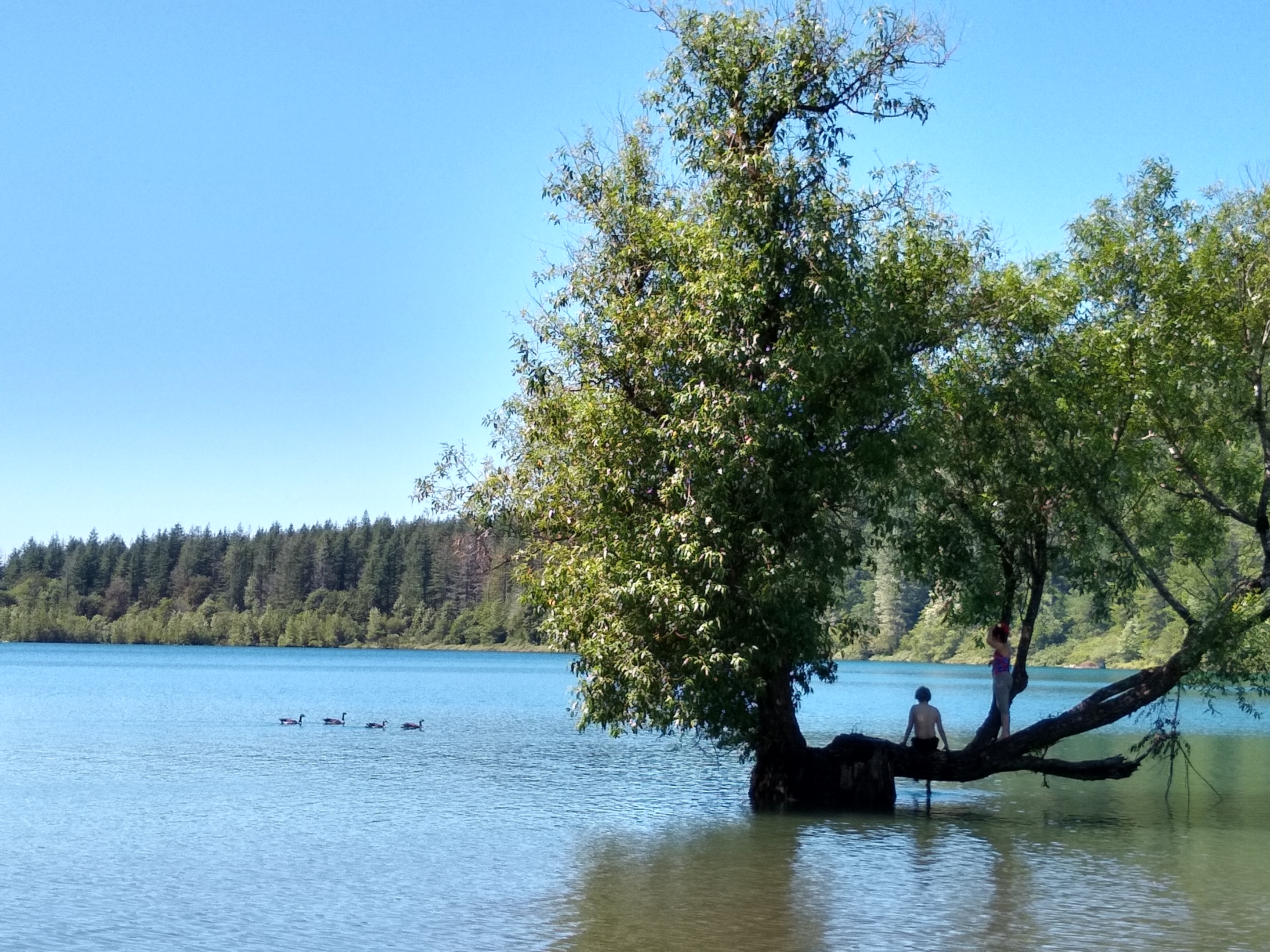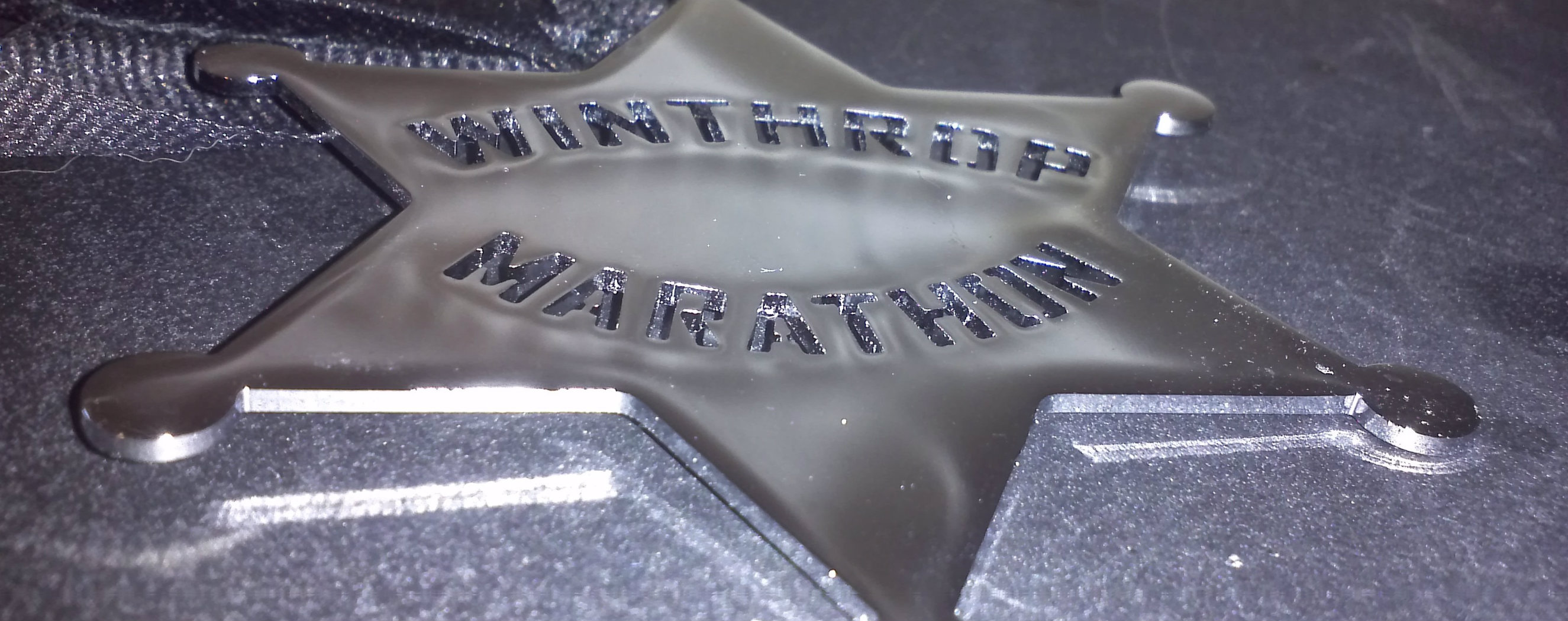No One Died Yesterday by Mark Stone
September 2025. One of my favorite books was given to me by my cousin David when he learned that I was getting serious about distance running: Tim Noakes' "Lore of Running".
In the chapter on hydration, Noakes discusses a rare, life threatening condition called hyponatremia. When we sweat profusely and only intake water, in rare cases we can reach an extreme sodium deficiency that the body responds to by rejecting further fluid intake.

Yesterday I volunteered for the Cascade Marathon, a beautiful point to point course in the Cascades, from Hyak Park to Rattlesnake Lake. Stationed at Mile 24, I was one of two volunteers at the last aid station. You see people at their most challenged at that point. It's a BQ course, so the fast, early runners are all struggling to hit their qualifying time. The last batch of runners are the "walking wounded", having hit the wall, and pushing themselves to keep moving for that last couple of miles. About 45 minutes after the first place runner passed our station we get word that there's a runner down a quarter mile back. I take off at a run to see what I can do.
It's a young woman, probably late 20s. Another runner standing by her tells me that she just kind of crumbled, and collapsed. No bleeding, no external sign of injury. But she's vomiting, and can't keep anything down. Mentally, I start checking off the signs: stomach is rejecting water, but she still feels thirsty; delirious; in and out of consciousness; wants her shoes and socks taken off because her feet are swelling. While I can't know for sure, this certainly looks like hyponatremia. While I have a hunch what she needs -- sodium and IV-administered fluids -- I feel helpless, because I have no ability to provide that relief in the moment.
Pushing down the feeling of helplessness, try to work the problem. Status: potentially hyponatremic runner, 2.5 miles from the finish line and nearest point accessible by ambulance. Actions: contact the assistant race director, whose cell phone number I have; convey that we have a runner down, in distress. Needs: we need search and rescue on the scene ASAP, and we need a call to 911. Now think again about actions and needs. I know that coma is one of the risks of hyponatremia, so keeping her conscious seems important. I question her. What's your name? Where are you from? How'd you get that scar on your thigh? Anything to keep her talking. About every 30 seconds she vomits. A runner with first aid training pauses, and says "Keep her on her side, with her head turned down. You don't want vomit clogging her airway." Great advice. Together we re-position her. I fighting back helplessness and just focus on whatever minor help I can provide, and whatever useful updates I can send to the assistant race director.
Then search and rescue arrives on a quad. We carefully lift her nto the quad, and he takes off for the finish line. I return to the aid station to complete another five hours of service before returning to the finish line. learn that the ambulance arrived promptly, and that she had been taken to the hospital. Presumably all is well now, but I'll never know for sure.
This incident disrupted runners yesterday. My partner at the aid station couldn't keep water and gatorade coming fast enough. Several runners abandoned their BQ or PR hopes to stop and help us. Having the quad rumbling down the course, sirens blaring further disrupted. Yet I'm reminded how strong the sense of community is among runners, shown in the willingness of folks to set aside their personal aspirations to help another runner, and in the abundant gratitude always shown to volunteers. I'm also reminded that any marathon pushes the bounds of human endurance, and therefore comes with grave risk. No one died yesterday. Any day on a marathon course that no one dies is a good day.
Also, I'm signing up for a first aid class at the earliest opportunity.



